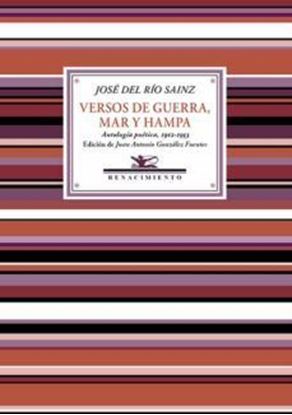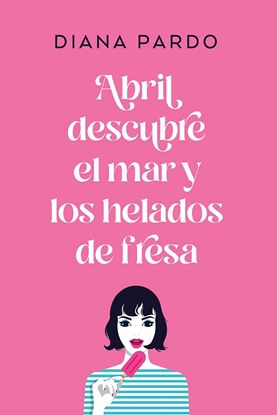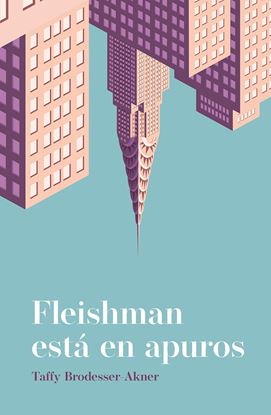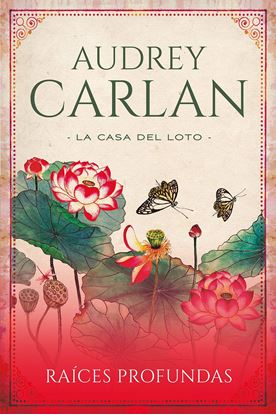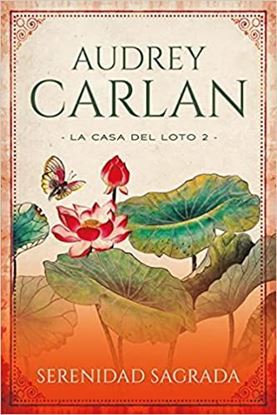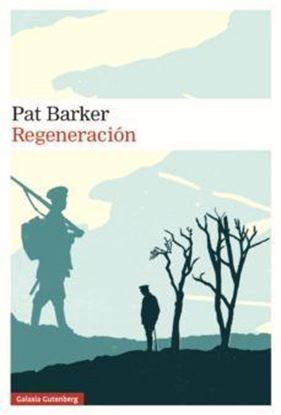

VERSOS DE GUERRA, MAR Y HAMPA (OF2)
Jose del Río Sainz (Santander, 1884-Madrid, 1964) fue marino de formación y vocación, uno de los más importantes periodistas santanderinos de la primera mitad del siglo XX (corresponsal de guerra en Marruecos, director de periódico, articulista elogiado por Chaves Nogales), y un singular poeta caracterizado por su energía, prosaísmo y plasticidad. Autor de poemas que tienen casi siempre algo de suceso narrado que queda trascendido mediante una comprensión lírica de la realidad, Jose del Río es calificado por Gerardo Diego como un poeta cuya enorme personalidad se manifiesta en la conciliación de contrarios: modernismo y realismo, parnasianismo y prosaísmo. Premio Fastenírath de poesía en 1925, el propio poeta, en las líneas autobiográficas que en 1934 publicó en la segunda antología preparada por Gerardo Diego, señala que por edad y formación es seguidor de Ruben Darío y que la cualidad que prefiere en los versos es la musicalidad. En esas mismas líneas dejaba apuntado, con humor y lúcida ironía, "he recibido banquetes y homenajes, una puñalada y una flor natural, que es lo que más me duele". Concha Espina escribió sobre el: "es como sus versos: fuerte, descuidado, sincero, valiente".
500
ABRIL DESCUBRE EL MAR Y LOS HELADOS OF1
Un romance maravilloso en el que el amor verdadero y saludable prevalece sobre las relaciones tóxicas y los tabúes sociales. Abril vive una vida de ensueño, o eso piensa ella. Ha adquirido el pack completo: marido, hijo y deudas en el banco. Cuenta con veinte años de feliz matrimonio junto a su media naranja, Pedro, y con las dos mejores y alocadas amigas que se podría desear: Maura, azafata de vuelos transoceánicos y experta en cruzar meridianos y Susana, abogada de familia con muchas dudas existenciales. De repente, su vida da un vuelco cuando Pedro le anuncia que ha aceptado un puesto de trabajo en Miami. donde ha conocido una nueva ilusión con nombre de mujer. Justo en ese momento comienza el desarrollo personal de la protagonista que, con la ayuda de sus dos fieles amigas, tendrá que encontrar la manera de ser fuerte y seguir adelante. En medio de este caos, Abril conoce a Óscar, un atractivo y maravilloso preparador físico doce años menor que ella. A pesar de su juventud, será el guía que le muestre el camino para vivir desde la gratitud, volviendo a abrir su corazón y despertando de nuevo su apetito sexual. Pero, ¿qué ocurre cuando Pedro se da cuenta de que ha cometido un error y quiere volver a su hogar, dulce hogar?
500
FLEISHMAN ESTA EN APUROS (OF2)
Toby Fleishman creyó saber qué podía esperar cuando él y su mujer, con quien ha estado casado durante casi quince años, se separan: fines de semana y vacaciones alternadas con los niños, alguna amargura residual, algún momento de tensión esporádico para negociar la crianza compartida de sus hijos. Pero no podía predecir que un día, en el medio de su emancipación sexual recién adquirida, Rachel dejaría a sus dos hijos en su casa y no volvería más. Toby se había esforzado tanto por encontrar un equilibrio en su vida de soltero. Los vientos de su optimismo, largamente inactivos, recién se habían puesto en marcha. Y ahora esto.
Mientras Toby intenta averiguar dónde fue Rachel, a la vez que hace malabarismos con sus pacientes del hospital, sus tareas parentales que no se acaban nunca y su recientemente adquirida popularidad sexual en las apps, termina siendo la prolija narrativa del marido rechazado y la mujer excesivamente ambiciosa. Pero si Toby quiere comprender de veras lo que le sucedió a Rachel y a su matrimonio, tendrá que aceptar que quizá no ha sido totalmente objetivo en su análisis de los hechos.
Un debut mordaz y sin tapujos, Fleishman está en apuros es una exploración perspicaz, inquietante y a menudo hilarante de una cultura que intenta gestionar las profundas líneas divisorias de una institución que ha demostrado ser digna de profundos recelos y profundas esperanzas.
500
RAICES PROFUNDAS (LA CASA LOTO 1) (OF1)
Primera entrega de la serie "La casa del loto". . Porque nunca el yoga había sido tan excitante. Una serie que combina la espiritualidad del yoga con el erotismo de forma muy atractiva. . La autora superventas Audrey Carlan (romance erótico) nos sorprende con su mejor saga, inspirada en su propia pasión por el yoga. La instructora de yoga Genevieve Harper lleva una vida llena de responsabilidades y sacrificio. Desde que perdió a sus padres, vive entregada al cuidado de sus hermanos pequeños y a su trabajo. A sus veinticuatro años, no tiene tiempo para dedicárselo a ningún hombre. ni siquiera al irresistible Trent Fox, conocido por ser un auténtico «jugador» tanto dentro como fuera del campo. Trent es una estrella del béisbol, pero una lesión lo lleva al centro de yoga "La casa del loto" para recuperarse. Allí conoce a Genevieve y la atracción que siente por ella es casi inmediata. Por ello se asegura de reservar clases particulares, que le muestran lo sensual que puede ser el arte del yoga. Pero, ¿puede nacer el amor entre una mujer con profundas raíces en su vida familiar y un hombre acostumbrado a relaciones más superficiales? De la autora de la exitosa "Calendar Girl", llega una obra en la que erotismo, sensualidad y espiritualidad se funden en una mezcla explosiva.
500
SERENIDAD SAGRADA (LA CASA LOTO 2) (OF1)
Segunda entrega de la serie "La casa del loto". . Porque nunca el yoga había sido tan excitante. Una serie que combina la espiritualidad del yoga con el erotismo de forma muy atractiva. . La autora superventas Audrey Carlan (romance erótico) nos sorprende con su mejor saga, inspirada en su propia pasión por el yoga. A sus 22 años, Amber St. James está centrada en sus estudios y tiene claro su objetivo: acabar su formación en la prestigiosa escuela de Medicina donde la han aceptado y convertirse en pediatra. Nunca le ha prestado demasiada atención al género masculino. hasta que se matricula en una asignatura sobre sexualidad; un tema que no domina por sus firmes convicciones, pero que le despierta una gran curiosidad. El instructor de yoga tántrico Dash Alexander es el profesor más sensual y solicitado del centro de yoga «La casa del loto». Sus clases triunfan por su estilo de enseñanza único, su naturaleza serena y su cuerpo de escándalo. Cuando se entera de las dificultades de Amber con su curso de sexualidad, le ofrece su ayuda. ¿La condición? Deberá asistir a sus clases de yoga tántrico en calidad de ayudante. Clase tras clase, asana tras asana, entre ambos va surgiendo una poderosa atracción, más intensa que cualquiera que Dash haya experimentado antes. Pero hay algo que Amber ha mantenido en secreto: es virgen por decisión propia. ¿Podrá la pasión derribar el muro de sus fuertes creencias?
500
REGENERACION (OF2)
Hospital de guerra Craiglockhart, Escocia, 1917, donde el psiquiatra del ejército William Rivers está tratando a soldados traumatizados por la guerra. Bajo su cuidado se encuentran los poetas Sigfried Sassoon y Wilfred Owen, así como el silencioso Billy Prior, que sólo es capaz de comunicarse por medio de lápiz y papel. El trabajo de Rivers es hacer que los hombres a su cargo vuelvan a estar lo suficientemente cuerdos como para luchar. Sin embargo, cuanto más se acerca a reparar las mentes de sus pacientes, más difícil se vuelve cada decisión de enviarlos de nuevo a los horrores del frente... Regeneración es la exploración clásica de cómo los traumas de la guerra brutalizaron a una generación de hombres jóvenes.
500


